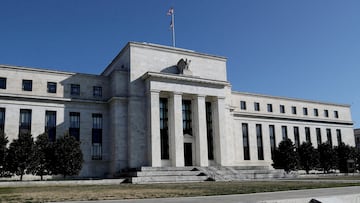FINANCE
Why did Republic Bank collapse and how can it affect you?
The first major bank failure of 2024 has taken place. The victim? Republic First Bank is an east coast institution with over thirty branches.

Financial regulators have seized Republic First Bank, transferring its assets and deposits valued at $10 billion to Fulton Bank. The failure of the Philideplhia-based financial institution represents the first major bank collapse recorded this year.
What caused the Republic First Bank collapse?
The Pennsylvania Department of Banking and Securities took the action to close the bank. Not much information has been released by the Department or the FDIC, which insures the deposits of bank customers across the country.
The short press release by the Department on Friday, 26 April, stated that the action was taken “pursuant to the Department of Banking and Securities Code citing unsafe and unsound condition, in order to protect depositors.” The FDIC was named as the receiver, and the federal agency reached an agreement with Fulton Bank to purchase and quit the deposits and assets of the now-defunct bank.
You might be interested in: Republic First Bank closes: what happens if you had deposits there?
CNBC reported that the reasons for the bank’s failure are similar to those seen last year when larger institutions, including First Republic Bank and Silicon Valley Bank, collapsed, unable to deal with the rapid increases in interest rates spurred by the Federal Reserve in an attempt to reduce inflation. Higher interest rates “boosted unrealized losses” on the bank’s balance sheet, reducing profitability. Additionally, the bank did not publish critical financial reports for 2022 or 2023, which CNBC Senior Banking and Finance correspondent Leslie Picker explained could have helped the institution bring in outside capital that could have kept operations afloat.
The company’s press releases and statements over the last year regularly discussed the institution’s troubles.
In June 2023, the bank announced that it would be limiting the hours of operation of its branches, citing increased use by customers of online banking options. However, reducing hours and the number of branches indicate that the bank sought to cut costs wherever possible. A month later, the leadership team would send a letter to shareholders with the message that the bank was turning a new leaf, thanks to their “revamped leadership team.” In the letter, bank officials warned that “there are no quick fixes or silver bullets for Republic.” They spoke to the efforts that at the time were being undertaken to backtrack on an “ill-advised” investment in “the Bank’s physical footprint and building of long-term fixed-rate residential loan and bond portfolios during a period of historically low interest rates.” As interest rates ticked up, these investments began to cost the bank, particularly as demand for mortgages plummeted. Federal Reserve officials are set to meet this week. Continued economic tightening could create more problems for banks, and such risks are likely taken into account when officials determine monetary policy.
Fulton Bank welcomes new customers
Fulton Bank’s Chairman and CEO Curt Myer voiced excitement late last week about the agreement reached with the FDIC as it will allow his institution to “double [their] presence across the region.” Myer also welcomed his new customers who, without their knowledge or consent, have seen their accounts transferred to a new institution after the failure. Customers affected by bank failure should be aware that in the near term, there are not many changes to be aware of. Fulton Bank will provide updates to these new account holders as the transition unfolds.






